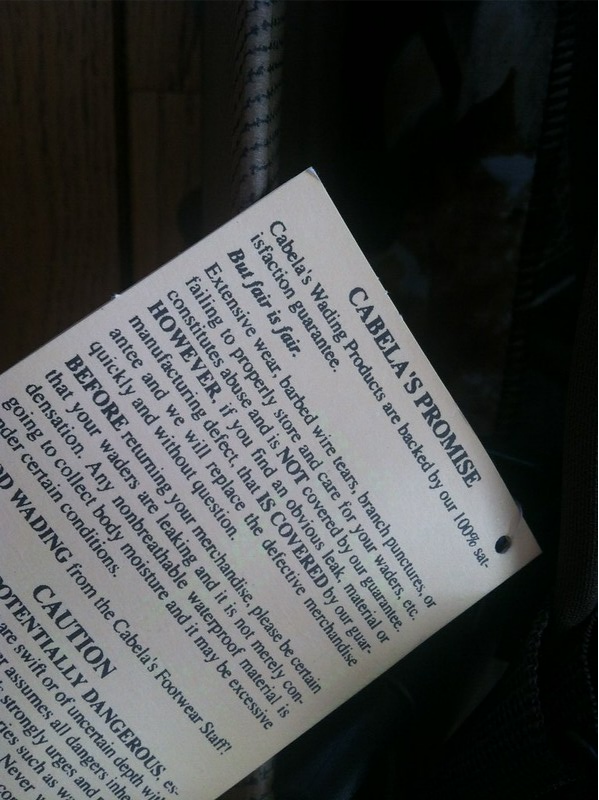
Individuals have the right to file a product liability claim if they get injured because of the use of a product. The plaintiff can demand and recover damages as compensation for the injury caused by the appropriate use of a product as specified by the manufacturer.
Various circumstances govern such a product liability case; most common ones include—strict liability, negligence, and breach of warranty. Strict product liability cases most often deal with defective or dangerous products. There is no pressure on the plaintiff to prove that the manufacturer or seller has been negligent.
With a case of negligence, it is essential to establish negligence on the part of the manufacturer, seller, wholesaler, or any other individual responsible for the provision of the product to the plaintiff. These individuals had the responsibility of exercising care―a responsibility that they were negligent of, resulting in the injury.
Breach Of Warranty
A breach of warranty is a situation when the product doesn’t work the way it’s supposed to. The legal liability, in this case, lies with the manufacturer of the product. It may apply when the manufacturer explicitly promises that a product will serve a particular purpose and will be operational for a specified amount of time.
It can also apply to cases where there is no explicit claim of the product’s capability. When buying a product, the consumer has some expectations regarding what the product will help them achieve. If the consumer’s reasonable expectations aren’t met, it is a breach of warranty, and the manufacture is to be held responsible.
Types Of Warranty In Arkansas
There are two broad types of warranty, according to the Uniform Commercial Code. Each state in the US follows the code for commercial transactions.
Express Warranty
Express warranty applies when the seller or manufacturer openly promises something. The promise can be during the negotiation, in the contract, or even during the sales pitch. They can be held liable if the promise doesn’t hold. A simple example is a manufacturer’s claim that a particular water heater will last for 15 years. If the heater stops functioning before 15 years, you can claim a breach of warranty.

Implied Warranty
Implied warranty doesn’t require an explicit promise. It relies on the concept of reasonable expectation. For instance, the water heater is expected to heat the water to a specific temperature. If it doesn’t due to reasons such as faulty machinery, then you can claim an implied warranty as the machine isn’t doing the job required of it.
Implied Warranty Of Merchantability
This type of implied warranty guarantees that the product doesn’t contain any manufacturing defects, improper design, or labels. When the seller puts up the product for sale, they are indirectly confirming that the product is in perfect condition and is fit to be used for the purpose for which it was created.
Implied Warranty Of Fitness
The implied warranty of fitness applies not when the product has defects, but when it is not the right one for the job. If the consumer is buying the product for a particular use case, it is incumbent on the seller to recommend a product that can achieve the purpose. For instance, if you ask a salesperson for a cleaner that cleans grease stains of metal and the salesperson recommends a product that doesn’t clean the said stains, there is a breach of implied warranty of fitness.

Laws For Breach Of A Warranty In Arkansas
According to the Arkansas Uniform Commercial Code, these are the laws for a breach of warranty.
Breach of express warranty
- An express warranty is created when the seller makes a promise or claim about the product.
- Any impressionable terms that close the sale of the item or the description of the item given by the salesman become part of the warranty.
- If the seller uses a sample or a model to make a claim or assertion, it also applies as a warranty.
It is not necessary for the manufacturer to explicitly use the terms ‘warranty’ or ‘guarantee’ for the claim to be declared such. Any promises made that result in the sale will be considered a warranty.
Breach Of Implied Warranty
The law for implied warranty states that the product is considered merchantable by comparing it to similar goods. It must serve the same purpose they do and should be equally as fit for execution. It also needs to be suitable for the purpose it is bought for; this applies especially when the consumer informs the salesperson of what they want and rely on the latter’s knowledge to recommend the best-suited product.
Beneficiaries Of The Warranty
The breach of warranty can be claimed if the use of the product hurts the buyer. According to the UCC, other members of the household or third parties, such as guests, are also included in the beneficiaries of the warranty. The warranty covers anyone in the household of the buyer/user, who is ‘reasonably expected’ to use the item.
Filing A Claim
As a resident of Arkansas, you have the legal right to compensation in case of a breach of warranty. Compensation may include damages for personal injury caused by faulty or defective machinery.
If you have been the victim of a breach of warranty, file a legal claim with a product liability attorney in Little Rock. Assert your claim and speak to Lisa Douglas, a professional and experienced product liability attorney. She specializes in all forms of defective product lawsuits and has dealt with several cases, including the 3m defective earplug lawsuit filed in Little Rock. Connect with her to learn how you can claim damages and get justice in your case.
Not Intended for Legal Advice: This material is for informational purposes and may not reflect the most recent legal developments. The information is not intended, and should not be taken, as legal advice on any set of facts or circumstances. You are advised to contact an attorney for legal advice for your specific set of facts and or circumstances.





